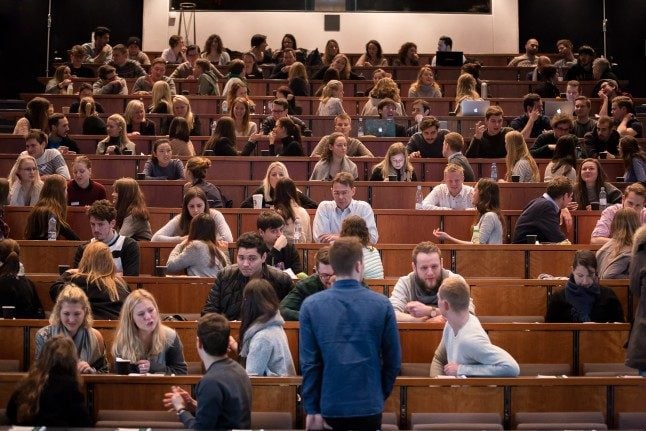Foreign students account for a large part of the increase.
A total of 87,000 new students started courses at a Swedish university for the 2007/2008 academic year – 5,800 more than the previous year and the first significant rise since 2002, according to the study compiled for the agency by Statistics Sweden (SCB).
“Students from abroad” – defined as exchange students and ‘free movers’ organizing their own studies – have steadily increased in number since the late 1990s and in 2007/2008 accounted for 25 percent of the total.
In 2007/2008, 21,800 students from abroad enrolled for courses at Swedish universities, up from 7,200 in 1998/1999.
Lena Eriksson at the National Agency for Higher Education told The Local on Monday that several factors are likely behind the increase.
“There has indeed been an increase in students from abroad, perhaps as a result of the Bologna process, but also the downturn in the labour market is a factor. Experience tells us that more people study when there are fewer jobs,” she said.
“Furthermore there are large numbers of 19-year-olds in Sweden at the moment and many of these are now starting to study.”
The figures also indicate the increasing popularity of distance-learning courses with over 101,400 students pursuing the courses.
This represents more than 25 percent of the total number of 384,000 new and existing students at Swedish universities in 2007/2008, up from 10 percent in 1997/1998.
A new structure for education and examinations was introduced in Sweden on July 1st 2007. The move is a step towards adapting higher education to Bologna – a process with the intention of increasing cooperation among European seat of higher learning and integrate higher education among European countries.
In a separate press release on Monday the agency published statistics showing that the number of “students with foreign backgrounds”, as distinct from “students from abroad”, are also on the increase at Swedish universities, but their representation varies greatly across the country.
This category is defined as students born overseas or having two parents born overseas (excluding adoptions). In contrast to the “students from abroad”, which are excluded, this category has a degree of longer term residency in Sweden.
Karolinska University in Solna has the highest proportion of students with a foreign background – with 38 percent of its total student body, followed by Södertörn University with 37 percent and the Royal Institute of Technology (KTH) with 29 percent.
With regard to students from abroad, KTH had the highest number in 2007/2008, followed by Lund University and Uppsala University.


 Please whitelist us to continue reading.
Please whitelist us to continue reading.
Member comments